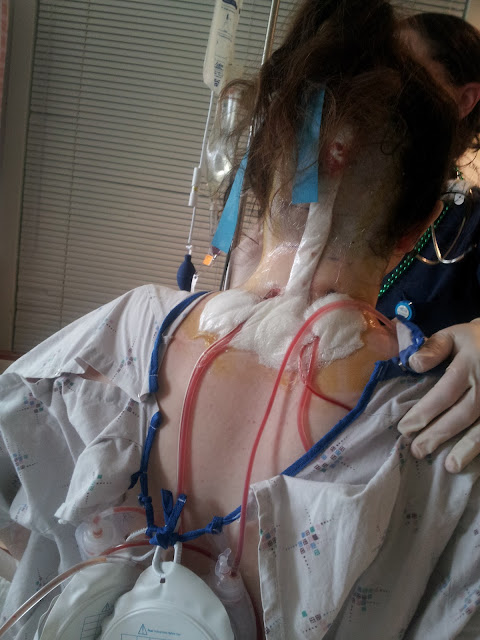Basically, I got myself into trouble with elimination diets and trying to identify my food triggers. I kept eliminating problem foods until I had almost nothing left. I tried to follow a low FODMAP diet for IBS. I was also following a low fiber, low fat, low residue diet for Gastroparesis. I also added the low histamine diet for suspected mast cell reactions. But when you don't eat enough food, Gastroparesis actually gets worse. Your stomach shrinks and slows down when it isn't constantly forced to handle more food.
So, I started a new plan of taking in calories once an hour throughout my 12-hour day. I alternated between liquids and solids, with pretty small portions. I added Naked Fruit Juice for extra calories. I found a meal replacement drink called Orgain that is pretty healthy, and full of liquid calories without a bunch of sugar and artificial chemicals. (You can buy it at Whole Foods or on Amazon. It's pretty tasty-but quite expensive.) And I've started baking more breads, muffins, and cookies. This has really helped my digestion!
Finally, I'm starting to incorporate some fruits and vegetables. Applesauce is still the easiest and safest. But I've successfully eaten a few pears and small servings of tiny chopped broccoli. I've even been able to switch back to whole grains, little by little. It is not a great diet, but it's a start.
I almost forgot the strangest part about this! My weight has not changed. When I dropped down to 600 calories a day, I weighed 116 lbs. Now that I'm back to 1500-1600 calories a day, I weigh 116 lbs. Maybe this is why I didn't notice sooner how undernourished I was! My weight didn't drop at all. My clothes still fit. I don't know what to think of this. Calories in and calories out certainly do not determine my weight though. Just thought I'd throw this in there for others trying elimination diets. Just because you are maintaining your weight does NOT mean you are getting enough calories! Add them up and be sure you are getting enough to keep your body running. I use My Fitness Pal, an iPad app. Based on my age, weight, gender, activity level, and weight loss goals (maintenance), it determined I need about 1560 calories a day. If I burn calories with exercise, I need to make those up. It has really helped me.
I still eat mostly a soft foods and liquid diet. And I need to avoid high histamine foods, since I have such clear systemic reactions to those. But I usually can get my calories without the meal replacement drink. It takes a lot of effort and careful planning. I have to count my calories to be sure I hit my goal. But I can do it. YAY!!!
Okay...before we get carried away here, I have a lot of symptoms going on every day. My dysautonomia is still bad. I still have spells of reduced consciousness every day, and I still lose consciousness at times. The cerebral hypoperfusion is still such a huge problem for me. And my allergy/mast cell issues are still seeming to progress.
I am considering making an appointment at Rush in Chicago with their Allergy/Immunology department to see if they can evaluate and treat mast cell disease. But, due to my trauma related to doctors/hospitals/etc., I'm still putting it off. Testing could include a bone marrow biopsy, skin biopsies, and an endoscopy with biopsies. I would refuse those tests at this time.
Next week, I'm starting with a local allergist. I do not believe he will know anything about Mastocytosis or Mast Cell Activation Disorder. But, he should be able to test me for true IgE allergies, especially to dogs, since this is my biggest concern right now. Unfortunately, you're supposed to go seven days without antihistamines before the testing, and I have no idea how I will tolerate that. I'm currently taking Allegra, Zyrtec, Astepro, Nasalcrom, Benadryl, and sometimes Atarax every day. Yes, every day. More when I'm around Charlie. I have no idea how I will survive without them for even one day.
If I can survive until the testing, and I test positive, maybe I could start allergy shots (immunotherapy) to try to reduce my reactions to dogs. This would improve my quality of life so much, because I could live with my little Charlie again!!! Allergy shots would be a logistical nightmare, since you have to go in three times a week for six months...then once a week for three to five years. I usually cannot drive, and my hubby works, so this would be quite a challenge to figure out. Beyond that, the allergy shots themselves could trigger a mast cell reaction, in which case I wouldn't be able to tolerate them at all. But it's worth a try. Anything for Charlie.
On a totally different note, I haven't been able to start working yet. But, I have joined a book club! It meets once a month in the evening, so it's a very small commitment. I've only been once, but it is nice to get out and be around people.
I'll update after my appointment with the allergist next week. Thanks for caring enough to keep reading.
.jpg)










.JPG)
.JPG)


.JPG)